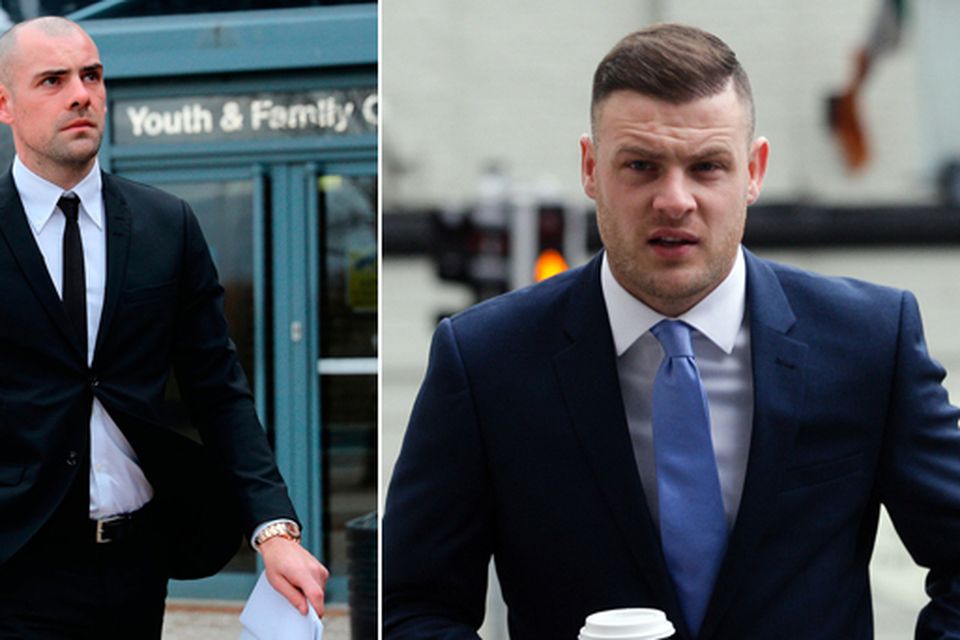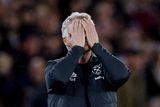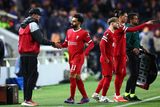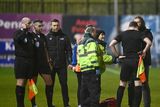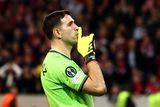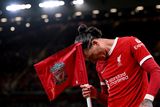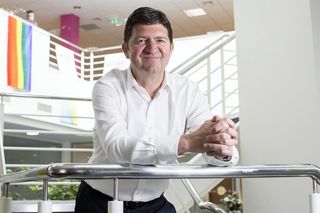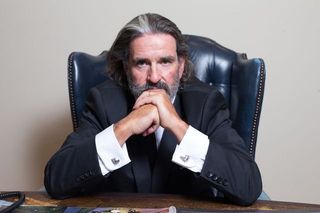Comment: Anthony Stokes and Darron Gibson have wasted their talent and are victims of self-inflicted tragedies
Darron Gibson and Anthony Stokes
THEY were the men, the gifted men, who had the football world at their feet. Right now, around the time of their 30th birthday, their careers are in tatters, if not in mortal danger.
And yet as Ireland internationals Anthony Stokes and Darron Gibson wonder what sort of future awaits them, in or outside of football, Gibson will learn next month if he will go to prison, having pleaded guilty earlier this week to a drink-driving charge.
Certainly as news emerged from Athens in the last week that Greek club Apollon Smyrnis have started legal action against Stokes, over the fact that he missed training and has gone AWOL just four games into his career in Greek football, many managers who have dealt with the talented player – who is still just 29 – will hardly have been surprised.
Roy Keane, Neil Lennon, Ronny Deila, Alan Stubbs and other coaches have been forced to deal with the enigma that is Dubliner Stokes. Talent to burn but a man who burns the candle at both ends.
As far back as 2007, his then club manager Keane made a bold prediction about Stokes’ career path, after the teenager was found to be too fond of the Glass Spider, one of the flesh pots on Sunderland’s nightclub scene.
“Stokes could be a top, top player in four or five years or he could be playing non-league. He’ll go one way or the other, I’m sure,” Keane said at the time.
The drop into non-league football has not come to pass. Not yet, anyway, but there’s no doubt that Stokes is in trouble.
He moved to Apollon, a struggling minor club in Athens, only last February, finding a Greek bolthole after he left SPL side Hibs for disciplinary reasons, manager Neil Lennon losing patience with the player after an incident on Hibs’ winter training camp in Portugal in January.
“I was very disappointed with the way things ended. There’s only so many times you can push the envelope,” Lennon said, explaining Stokes’ exit.
“There is a line that I won’t tolerate, and Anthony had plenty of chances not to cross that line. We’ve been saying for years that he’s a talented player, and it’s a shame, but I can’t keep rapping him on the knuckles and saying it’s all right.”
So Stokes swapped Edinburgh for Athens, Apollon landing him on a short-term contract.
The club is not that glamorous, attracting crowds of under 1,000, and Greek football is in big trouble now, with players at some clubs going on strike due to unpaid wages while the whole league programme was suspended last month after the controversial owner of one club, PAOK, came onto the pitch, carrying a gun and headed in the direction of the match referee.
But Greece was Stokes’ shot at redemption, a chance to play games, score goals and live life away from the temptations of London and Glasgow, while fans of the club were very excited to have landed a player with Premier League, Champions League and international pedigree.
Four games (and no goals in) and he’s gone.
But the club have gone public on their issue with Stokes, claiming that the striker was late in returning to Athens after the Easter holidays, that he was summoned to appear before the club’s disciplinary committee but disappeared and has not been seen since.
Reports in Athens claim that the club have no idea where Stokes is right now.
If he can extricate himself from that wrangle, what next?
He has always done well in the SPL but that league may not be welcoming any more, given his issue at Hibs was only four months ago.
Lennon was not the first SPL boss who struggled to deal with Stokes. Back in 2015, when Stokes was still at Celtic, their manager Ronny Deila lost patience when Stokes lost his, complaining on Twitter about being left out of the Celtic side for a game away to Inverness. The club suspended Stokes for two weeks but Deila revealed that the tweet was just the tipping point.
“I think everybody understands it’s not about that single incident,” Deila said.
“There have been some issues in the past and now we felt we had to put down a marker. I wouldn’t go into the different issues – that’s between me and him and the club.”
While Stokes tries to save his career, Gibson has a far more serious battle ahead. He no longer has a club as his contract with Sunderland was cancelled after he was arrested on a drink-driving charge last month, and this week he pleaded guilty – his second guilty plea in relation to drink driving in three years – and he will be sentenced on May 25.
Stokes and Gibson have been aligned with each other for some time. They were born just nine months apart, they began their senior careers at two of the top clubs in England (Stokes with Arsenal, Gibson at Manchester United), and both made it into to the first team (though Stokes played just once for the Gunners).
They even progressed to the senior Ireland squad at the same time: Stokes made his debut, under Steve Staunton, in that 2-1 win away to San Marino in 2007, where Gibson was an unused sub.
They amassed trophies with their clubs: Stokes won no fewer than eight major honours in Scotland (mainly with Celtic but he also helped Hibs win the Scottish Cup in 2016) and has a Championship medal from his Sunderland days, while Derry lad Gibson has a Premier League winners medal from his time at Old Trafford and scored in a Champions League quarter-final.
They soldiered together in green, both in the starting XI for senior internationals against Germany and Kazakhstan in the interregnum between Giovanni Trapattoni and Martin O’Neill.
But off-field matters have also dogged the duo. Last year Stokes was given a two-year suspended sentence for an assault charge over an incident involving an Elvis impersonator in a Dublin nightclub and earlier this year he pleaded guilty to a charge of driving without a valid licence, while Gibson now has a pair of drink-driving charges on his record.
There was a time when both men looked destined for great things. Liam Brady, who worked with Stokes at Arsenal at the start of his career, expected greatness. “Stokes is the best young player to come out of Ireland since Robbie Keane and Damien Duff,” he said in 2007, just after the Gunners sold Stokes to Sunderland for £2m, explaining that the sale was reluctant, as Arsene Wenger saw Stokes as a possible Arsenal player in the future but the teenager wanted first team football right away.
As recently as 2015, Martin O’Neill said he hoped that Stokes, at the time awaiting a court appearance over that nightclub incident, could still feature.
“It’s been a tough time for him in recent months and Anthony’s a lad that you think thrives on feeling confident. I think some of the managers that have had him in the past have said exactly that; a confidence player.
“A lot of players with a bit of ability do have that confidence issue. Is there time for people to make a bit of an impact yet? Absolutely,” O’Neill said.
The Ireland coach had tried, using Stokes in his first two games in charge in 2013, but the 29-year-old has been capped just once since then, while the last sighting of Gibson in a green shirt was in that friendly loss to Belarus before Euro 2016.
Gibson failed to make the cut for France, at the time a major blow to the player while Stoke had hoped to play for his country again too.
Now, it’s sadly safe to assume that at 29 (Stokes) and 30 (Gibson), are ex-internationals. Possibly even ex-footballers. A tragedy, but a self-inflicted one.
